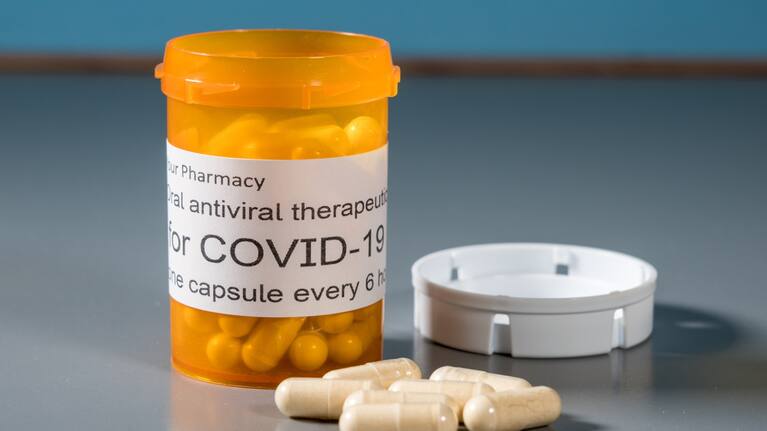Pharmac is continuing to increase New Zealand’s number of treatments for Covid-19 to help reduce the severity of the virus with multiple agreements already secured and more on the way.
Pharmac chief executive Sarah Fitt told Breakfast on Wednesday morning they already had five treatment options secured for use here but “half a dozen” more - including Pfizer's Paxlovid - are on the table.
"What we're trying to do is build up a portfolio of treatments to be used for Covid-19," Fitt said.
"We're talking to Pfizer as well as a number of other companies."
Another of the new medicines, Merck Sharp & Dohme's molnupiravir, is also set to become part of New Zealand's response to the virus with 60,000 treatments secured, although Fitt said it still needs the final clearance from MedSafe.
Fitt said she had no issues with MedSafe's sign-off speed for tested treatments such as molnupiravir, believing it better to be safe than sorry.
"Everybody is assessing these medicines and you've got to remember these medicines are very new to the market and their trial data is still quite limited," she said.
"In fact, things are moving very quickly in this area and I think MedSafe is talking with other regulators around the world."

Fitt added there's also the issue of stock supplies to consider.
"It's partly the MedSafe approval, but it's also actually physically getting the stock into the country.
"Obviously companies are having to ramp up their production so there's a variety of timelines as to when treatments will get into the country."
Fitt said the treatments Pharmac are securing will help New Zealanders who will suffer with the virus.
"Certainly for molnupiravir, it does look as though because that is an anti-viral [medicine], it's much better to give that early on in the treatment course when people are perhaps developing those first couple of days of symptoms.
"Other treatments you may give when people are feeling a bit more unwell and then you have the other treatments at the other end of the spectrum where patients are in hospital in intensive care."
Fitt said the best treatment for the virus however is prevention.
"Vaccination is still the number one defence against Covid-19," she said.
"But what this gives us is a toolkit of treatments if we need them."


















SHARE ME